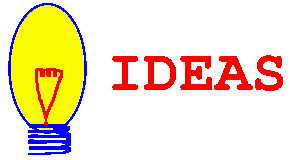HOW CAN BLOCKCHAIN CONTRIBUTE TO DEVELOPING COUNTRY ECONOMIES? A LITERATURE REVIEW ON APPLICATION AREAS
DOI:
https://doi.org/10.2478/eoik-2022-0009Keywords:
Blockchain, Macro Economics, Competitiveness, Innovation, Developing Countries, Corruption, Financial Inclusion, Property Rights, Supply Chain, NFT.Abstract
Blockchain technology originally finding applications in Fintech and supply
chain management is rapidly expanding applications to other industries as well
as the public sector. “Blockchain has been compared to the invention of the
internet and its comprehensive impact on almost every industry.” R. Beck and B.
Markey-Towler (2017) A recent study by PWC (2020) found that, “Blockchain
technology has the potential to boost global gross domestic product by $1.76
trillion USD over this decade.” It has been argued that the digital revolution has
favored more developed nations and that has helped create a “digital divide” with
less developed nations. Business and governmental infrastructure in developing
nations have lagged that of more developed nations. Some of these challenges faced
by developing nations include the registration of property ownership, financial
systems, modern efficient supply chains often accompanied by a lack of trust and
the ability to verify and audit organizational processes rapidly and economically.
Blockchain technology has the promise to address many of the critical needs of
developing countries internally and in external trade relationships to help enable
them to be more competitive. This paper will review the literature and examine
the impact of Blockchain technology on how its adoption may ameliorate many
of these critical challenges for developing nations helping to improve governance
and economic benefits that are shared more equitably. Potential for both positive
and negative impacts with be discussed along with policy implications for public
policy makers and private enterprises.
References
Aarvik, P. (2020). Blockchain as an Anti-Corruption Tool: Case Examples and Introduction to the Technology. U4 Anti-Corruption Resource Centre, Chr. Michelsen Institute.
Abebe, Gumataw K., Jos Bijman, and Annie Royer (2016). Are middlemen facilitators or barriers to improve smallholders welfare in rural economies? Empirical evidence from Ethiopia. Journal of Rural Studies, 43, 203–213,
https://doi.org/10.1016/j.jrurstud.2015.12.004
Abou Jaoude, J., & Saade, R. G. (2019). Blockchain applications–usage in different domains. IEEE Access, 7, 45360-45381.10.1109/ACCESS.2019.2902501
Abramovitz, M. (1986). Catching Up, Forging Ahead, and Falling Behind. The Journal of Economic History, 46 (2), 385–406.
Ad Age (2022). How NFTs are used by marketers—a continually updated list, (7 March)
https://adage.com/article/digital-marketing-ad-tech-news/how-brands-are-using-nftscontinually-
updated-list/2376086
Adams, S. (2010). Intellectual Property Rights, Investment Climate and FDI in Developing Countries, International Business Research, 3(3), 201-209. http://dx.doi.org/10.5539/ibr.v3n3p201
Alicke, Knut, Ed Barriball and vera Troutvein (2021). How Covid-19 is Reshaping Supply Chains,McKinsey.
Al-Monitor (2022). Retrieved from:https://www.al-monitor.com/originals/2022/02/turkey-sinks-corruption-index-activistspoint-
public-tender-system
Barraud, Christophe (2022). Macro view: Supply chain crunch marginalises developing countries,
Pharmaceutical Technology, https://www.pharmaceutical-technology.com/comment/global-supply-chain-crunchmarginalises-
developing-countries/
Baruri, P. (2016). Blockchain Powered Financial Inclusion, Cognizant. Retrieved from: https://afyonluoglu.org/PublicWebFiles/Reports-CS/2016%20WB%20-%20Blockchain%20Powered%20Financial%20Inclusion.pdf
Boğa, S., & Topcu, M. (2020). Creative Economy: A Literature Review on Relational Dimensions,Challenges, and Policy Implications, ECONOMICS, 8 (2), 149-169. https://doi.org/10.2478/eoik-2020-0014
Canals, C & Şener, F. (2014). Offshoring and Intellectual Property Rights Reform. Journal of Development Economics, 108 (C), 17-31.
https://doi.org/10.1016/j.jdeveco.2014.01.001
Casey, C. (2022). Food Dive, https://www.fooddive.com/news/8-carbon-neutral-brands-aiming-to-cut-the-food-andbeverage-
industrys
Cavallo, A. (2021). Inflation Dynamics During Covid-19, The National Bureau of Economic Research,
https://www.nber.org/reporter/2021number3/inflation-dynamics-during-covid-19
CCN (2016). Survey: Blockchain Capital Markets Spending to Reach $1 Billion in 2016
Retrieved from: https://www.ccn.com/financial-and-technology-sectors-to-invest-1-billion-in-blockchaintechnology-
in-2016/
Chamisa, M. G. (2020). Does Corruption Affect Foreign Direct Investment (FDI) Inflows in SADC Countries?.
Journal of Applied Accounting and Taxation, 5(2), 166-174.
https://doi.org/10.30871/jaat.v5i2.1873
Chen, Y. (2018). Blockchain tokens and the Potential Democratization of Entrepreneurship and Innovation, Business Horizon, 61, 567-565. https://Doi.org/10.1016/j.bushor.2018.03.006
Cicchiello, A. F., Kazemikhasragh, A., Monferrá, S., & Girón, A. (2021). Financial Inclusion and Development in the Least Developed Countries in Asia and Africa. Journal of Innovation and Entrepreneurship, 10(1).
https://doi.org/10.1186/s13731-021-00190-4
Clark, M. (2021). NFTs Explained, the Verge, (August) https://www.theverge.com/22310188/nft-explainer-what-is-blockchain-crypto-art-faq
Chinaka, M. (2016). Blockchain Technology – Applications in Improving Financial Inclusion in Developing Economies: Case Study For Small Scale Agriculture in Africa. Massachusetts Institute of Technology.
Retrieved from: https://dspace.mit.edu/bitstream/handle/1721.1/104542/958426765MIT.pdf?sequence=
&isAllowed=y
Davis, M., Lennerfors, T. T., & Tolstoy, D. (2021). Can Blockchain-Technology Fight Corruption in MNEs’ Operations in Emerging Markets?. Review of International Business and Strategy. https://doi.org/10.1108/RIBS-12-2020-0155
Deloitte (2019). Can blockchain turn the tide on financial crime compliance? Retrieved from:https://www2.deloitte.com/mt/en/pages/financial-services/articles/mt-risk-article-canblockchain-turn-the-tide-on-financial-crime-compliance.html
Deloitte (2021). The Future of the Creative Economy, Deloitte Industry Report, (June). https://www.google.com/url?sa=t&rct=j&q=&esrc=s&source=web&cd=&ved=2ahUKEwjzp4-ojqn3AhWzFjQIHZ1ACJ4QFnoECAMQAQ&url=https%3A%2F
%2Fwww2.deloitte.com%2Fcontent%2Fdam%2FDeloitte%2Fuk%2FDocuments%2Ftechnology-media-telecommunications%2Fdeloitte
uk-future-creative-economy-reportfinal.pdf&usg=AOvVaw2i7fHwg8Fg3hUg0F_kCW2y
Dixit, A. (2009). Governance Institutions and Economic Activity. American Economic Review,99(1), 5-24.10.1257/aer.99.1.5 Econotimes, Bitland Partners with CCEDK to Improve Blockchain Land Registry in West Africa, retrieved from
Eder, G. (2019). Digital Transformation: Blockchain and Land Titles. Paris: OECD Global Anti-Corruption & Integrity Forum.
Retrieved from:https://www.oecd.org/corruption/integrity-forum/academic-papers/Georg%20Eder-%20
Blockchain%20-%20Ghana_verified.pdf
Ellyatt, H. (2021). Supply chain chaos is already hitting global growth. And it’s about to get worse, CNBC, https://www.cnbc.com/2021/10/18/supply-chain-chaos-is-hitting-global-growth-andcould-get-worse.html
Freckleton, M., Wright, A., & Craigwell, R. (2012). Economic Growth, Foreign Direct Investment and Corruption in Developed and Developing Countries. Journal of Economic Studies, 39(6),639-652.
https://doi.org/10.1108/01443581211274593
Garcia, H. C. E. (2021). Blockchain Innovation Technology for Corruption Decrease in Mexico. Asian Journal of Innovation and Policy, 10(2), 177-194.
http//dx.doi.org/10.7545/ajip.2021.10.2.177
Gatteschi, V., Lamberti, F., Demartini, C., Pranteda, C., & Santamaría, V. (2018). Blockchain and smart contracts for insurance: Is the technology mature enough?. Future internet, 10(2), 1-16.
https://doi.org/10.3390/fi10020020
Gillpatrick, T. (2019). The Digital Transformation of Marketing: Impact on Marketing Practice and Markets, ECONOMİCS, 7(2),139-156.
https://doi.org/10.2478/eoik-2019-0023
Gray, J., & De Luce, I. (2021). Cashing In, The Business of Business, https://www.businessofbusiness.com/articles/nft-celebrity-non-fungible-tokens-cryptogrimes-paris-hilton/
Hammer, S. (2018). The Blockchain Ecosystem. http://dx.doi.org/10.2139/ssrn.3281020
Hassan, S., & De Filippi, P. (2021). Decentralized Autonomous Organization. Internet Policy Review, 10(2), 1-10.10.14763/2021.2.1556
Hausman, Josh (2021). Covid has Broken the Economy, The Atlantic, December 10, https://www.theatlantic.com/ideas/archive/2021/12/pandemic-economy-inflationcauses/620931/
Haydaroğlu, C. (2015). The Relationship between Property Rights and Economic Growth: An Analysis of OECD And EU Countries. DANUBE: Law and Economics Review, 6(4).10.1515/danb-2015-0014
Higgins, S. (2016). Republic of Georgia to Develop Blockchain Land Registry,
Retrieved from: https://www.coindesk.com/tech/2016/04/22/republic-of-georgia-to-develop-blockchainland-
registry/
Hilding Ohlsson, M. (2007). Impact of Corruption on FDI: A Cross–Country Analysis. Master Thesis.
Retrieved from: https://www.diva-portal.org/smash/get/diva2:611227/FULLTEXT01.pdf
Hirtenstein, Anna (2022). The West Is Still Buying Russian Oil, but It’s Now Harder to Track, Wall Street Journal (21 April),
Insider (2022). Use cases of blockchain technology in business and life.
Retrieved from: https://www.insiderintelligence.com/insights/blockchain-technology-applications-usecases/
Investopedia (2021). What Is Corruption?
Retrieved from: https://www.investopedia.com/terms/c/corruption.asp#:%7E:text=Corruption%20is%20
dishonest%20behavior%20by,laundering%20money%2C%20and%20defrauding%20
investorsIyengar, G., Saleh, F., Sethuraman, J., & Wang, W. (2020). Economics of permissioned blockchain
adoption. http://dx.doi.org/10.2139/ssrn.3602376
Karnouskos, S. (2021). Blockchain for Development in the Era of the COVID-19 Pandemic. IEEE Open Journal of the Industrial Electronics Society, 2, 556-567.10.1109/OJIES.2021.3121549
Kshetri, N., & Voas, J. (2018). Blockchain in Developing Countries. IT Professional, 20(2), 11–14.
https://doi.org/10.1109/MITP.2018.021921645
Kshetri, Nir (2021). The Economics of Blockchain-Based Supply Chain Traceability in .10.1109/MC.2021.3082835
Köhler, Susanne, Massimo Pizzol and Joseph Sarkis (2021). Unfinished Paths—From Blockchain to Sustainability in Supply Chains, Frontiers in Blockchain, V16 (November). https://doi.org/10.3389/fbloc.2021.720347
Lee, D. (2017). Decentralization and Distributed Innovation: FinTech, Bitcoin and ICO’s. Stanford Asia–Pacific Innovation Conference.
Lee, Jinjoo (2022). Nike, Adidas and Under Armour are getting into the NFT Game, Wall Street Journal, (25 January).
https://www.wsj.com/story/nike-adidas-and-under-armour-are-getting-into-the-nftgame-677a93b6
Lehman, Fabrice and Carlos Cordon (2020). Business supply chain strategies are evolving, can poorcountries benefit? IMD (October).
https://www.imd.org/research-knowledge/articles/business-supply-chain-strategiesevolving-
can-poor-countries-benefit/
Lafrogne-Joussier, R, J Martin, and I Mejean (2022). ”Supply chain disruptions and mitigation strategies”, VoxEU.org, 05 February.
https://voxeu.org/article/supply-chain-disruptions-and-mitigation-strategies
Locke, Taylor (2021). Jack Dorsey Sells His First Tweet Ever as an NFT for Over $2.9 million,
CNBC, https://www.cnbc.com/2021/03/22/jack-dorsey-sells-his-first-tweet-ever-as-an-nft-forover-
point9-million.html
Lund, S, J Manyika, J Woetzel, E Barriball, M Krishnan, K Alicke, M Birshan, K George, S Smit,
and D Swan (2020).
Risk, resilience, and rebalancing in global value chains, McKinsey Global Institute.
https://www.mckinsey.com/business-functions/operations/our-insights/risk-resilienceand-
rebalancing-in-global-value-chains
M. Lichtfous, V. Yadav, & V. Fratino (2018). Can Blockchain Accelerate Financial Inclusion
Globally, Inside Magazine, 19. Retrieved from: https://theblockchaintest.com/uploads/resources/file-36385816098.pdf
Mann, T. J. (2019). Blockchain Technology-China’s Bid to High Long-Run Growth. Gettysburg Economic Review, 11(1), 51-74.
Retrieved from: https://cupola.gettysburg.edu/cgi/viewcontent.cgi?article=1073&context=ger
Maskus, K. E. (2000). Intellectual Property Rights and Foreign Direct Investment (May 2000).
Centre for International Economic Studies Working Paper, 22. http://dx.doi.org/10.2139/ssrn.231122
Medium (2018). How Does a Blockchain Prevent Double-Spending of Bitcoins?.
Retrieved from:
https://medium.com/innerquest-online/how-does-a-blockchain-prevent-doublespending-
of-bitcoins-fa0ecf9849f7#:%7E:text=In%20summary%2C%20the%20
blockchain%20prevents,and%20impossible%20to%20tamper%20with
Miller, T. (1997). The Role of Property Rights in Economic Development that Benefits the Poor.
Retrieved from: http://citeseerx.ist.psu.edu/viewdoc/download?doi=10.1.1.619.1436&rep=rep1&type=pdf
Natarén, C., & Herran, A. (2019). Restoring Trust in Mexican Government. Preliminary Assessment of DLT Implementation.
In Proceedings of the 2019 International Conference on Blockchain
Technology (24-29).
Nunes, Joseph, Andrea Ordanini, and Gaia Giambastiani (2021). The Concept of Authenticity: What It Means to Consumers, Journal of Marketing, 85(4) 1-20.
https://doi.org/10.1177/0022242921997081
Ogundeji, O. (2016). Land Registry Based on Blockchain for Africa. Retrieved from: www.itwebafrica.com/enterprise-solutions/505-africa/236272-land-registry-based-onblockchain-for-africa.
Omar, M. A., & Inaba, K. (2020). Does Financial Inclusion Reduce Poverty and Income Inequality in Developing Countries? A Panel Data Analysis. Economic Structures, 9(37).
https://doi.org/10.1186/s40008-020-00214-4
Ohnesorge, J. (2018). A Primer on Blockchain Technology and Its Potential for Financial Inclusion, Discussin Paper.
doi:10.23661/dp2.2018
Öngel, V., Yavuz, M.S., & Tatlı, H.S. (2021). Digital Transformation in the Public Sector: A Suggestion for the Use of Blockchain Technologies in Public Procurement. In Current Developments in Public Procurement, Digital Transformation and Contract Management
(Ed. Erdem Bafra, Mustafa Çağatay Taşyürek). Public Procurement Office, Ankara.
Pipe&Piper (2021). What is cryptocurrency? And why you should care.
Retrieved from: https://pipeandpiper.co.uk/2021/08/16/what-is-cryptocurrency/Prnewswire,
PWC (2020). The Impact of Covid-19 on the Supply Chain Industry,
https://www.pwc.com/ng/en/assets/pdf/impact-of-covid19-the-supply-chain-industry.pdf
Radoff, Jon (2021). Evolution of the Creator Economy (7 May).
https://medium.com/building-the-metaverse/evolution-of-the-creator-economy-9e038e8411af
Radoff, Jon (2021). The Metaverse Value Chain,
https://medium.com/building-the-metaverse/the-metaverse-value-chain-afcf9e09e3a7
Radoff, Jon (2021). The Permissionless Metaverse,
https://medium.com/building-the-metaverse/the-permissionless-metaverse-658872a35da4
Roser, Max and Esteban Ortiz-Ospina (2013). - "Income Inequality". Published online at OurWorldInData.org. Retrieved from:
https://ourworldindata.org/income-inequality
Sanka, A. I., & Cheung, R. C. (2019). Blockchain: Panacea for Corrupt Practices in Developing Countries. In 2019 2nd International Conference of the IEEE Nigeria Computer Chapter (NigeriaComputConf) (1-7). IEEE.
Schmidt, K., & Sandner, P. (2017). Solving Challenges in Developing Countries with Blockchain Technology. Frankfurt School Blockchain Center, City. Retrieved from: http://explore-ip.com/2017_Solving-Challenges-in-Developing-Countries-with-
Blockchain-Technology.pdf
Shang, Q. & Price, A. (2019). A Blockchain-Based Land Titling Project in the Republic of Georgia: Rebuilding Public Trust and Lessons for Future Pilot Projects. Innovations: Technology, Governance, Globalization, 12(3–4), 72–78.
https://doi.org/10.1162/inov_a_00276
Singh, K., & Singh Kondan, A. (2011). Financial inclusion, development and its determinants, an empirical evidence of Indian States. Asian Economic Review, 53(1), 115.
Sundararajan, Arun (2022). How Your Brand Should Use NFTs, Harvard Business Review, (28 February).
https://hbr.org/2022/02/how-your-brand-should-use-nfts
Thomason, J., Ahmad, M., Bronder, P., Hoyt, E., Pocock, S., Bouteloupe, J., ... & Shrier, D. (2018). Blockchain—powering and empowering the poor in developing countries. In Transforming climate finance and green investment with blockchains (137-152). Academic Press. The Global Findex Database (2017). Measuring Financial Inclusion and the Fin-tech Revolution. Washington, DC: World Bank.
doi:10.1596/978-1-4648-1259-0.
The conversation.com, (2018).
Retrieved from: https://theconversation.com/blockchain-based-property-registries-may-help-lift-poorpeople-out-of-poverty-98796
The World Bank (2018). Logistics Performance Index (LPI). https://lpi.worldbank.org/
USAID, (2016). Retrieved from:
https://www.land-links.org/wp-content/uploads/2016/09/USAID_Land_Tenure_Honduras_Profile_0.pdf
UNSGA, (2018). Igniting SDG Progress Through Digital Financial Inclusion.
Retrieved from: https://sustainabledevelopment.un.org/content/documents/2655SDG_Compendium_Digital_Financial_Inclusion_September_2018.pdf
Vieira, Richard (2021). Global Supply Chain Issues in the Developing World, Borgen project, https://borgenproject.org/global-supply-chain-issues/
What are smart contracts on blockchain? | IBM. (n.d.). IBM. https://www.ibm.com/topics/smart-contracts#:%7E:text=Smart%20contracts%20are%20simply%20programs,intermediary’s%20involvement%20or%20time%20loss.
World Economic Forum (2021). How governments can leverage blockchain to stunt corruption.
Retrieved from: https://www.weforum.org/agenda/2020/06/governments-leverage-blockchain-publicprocurement-
corruption/
Xie, Linda, Jesse Walden and Sonal Chokshi (2021). All About NFTs, podcast (March).
Downloads
Published
How to Cite
Issue
Section
License
Copyright (c) 2022 ECONOMICS - INNOVATIVE AND ECONOMICS RESEARCH JOURNAL

This work is licensed under a Creative Commons Attribution-NonCommercial-NoDerivatives 4.0 International License.























